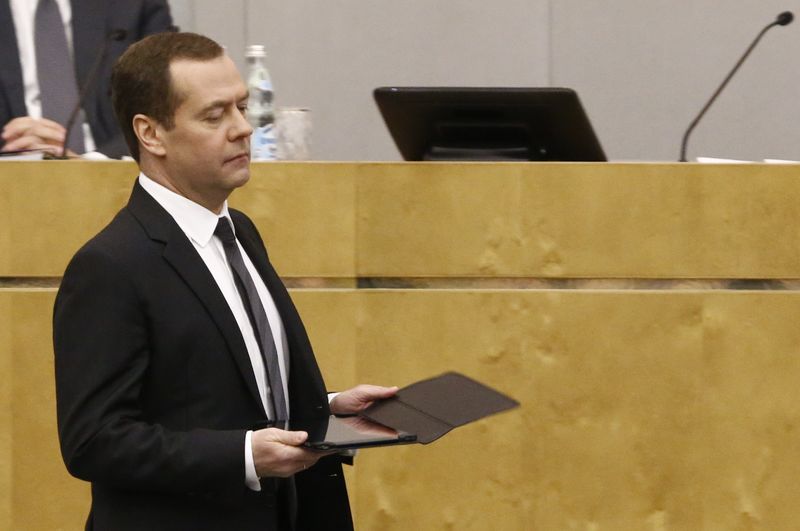By Denis Pinchuk
MOSCOW (Reuters) - Nearly half of Russians want Prime Minister Dmitry Medvedev to quit, an opinion poll showed on Wednesday, suggesting corruption allegations levelled against him by political opponents have taken a toll.
Opposition politician Alexei Navalny released a video last month accusing Medvedev of owning a sprawling portfolio of luxury homes and of amassing a fortune that outstripped his salary. It has been watched more than 20 million times on YouTube and helped spark recent protests across Russia.
Medvedev, a close ally of President Vladimir Putin, has dismissed the allegations as politically motivated "nonsense", suggesting they were designed to stir up trouble ahead of a presidential election next year which Putin is expected to contest.
On Wednesday, the Levada Center, a pollster which casts itself as independent, released the results of a survey showing that 52 percent of Russians did not trust Medvedev, up from 42 percent in March 2014 after Russia annexed Crimea.
The same survey showed that 45 percent of Russians favoured him quitting and that 30 percent said they had a negative attitude towards him.
Natalia Timakova, Medvedev's spokeswoman, told Reuters: "The prime minister does not attach special value to polls, especially when it comes to those that have been conducted by the Levada Center to political order."
The survey was conducted across Russia and involved 1,600 people.
The Levada Center was designated a "foreign agent" in 2016, a term applied to Russian non-governmental groups that receive foreign funding.
Lev Gudkov, the head of the pollster, told online TV channel Fontanka Office he wanted an apology from Medvedev's office.
"They'd better apologise to us for their false statement that this is a political put-up job," he said.
Karina Pipiya, a Levada spokeswoman, told Reuters the pollster stood by its findings.

"The survey is not an 'order'. There is no scoop here in that the peaks (of support for the authorities) that were observed after Crimea's (annexation) are fading and the numbers are returning to normal."